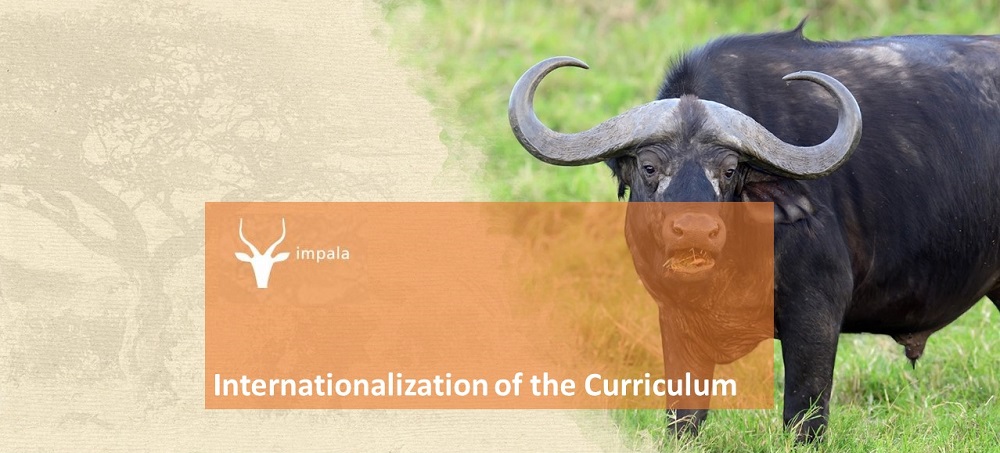Internationalization is an essential initiative for institutions of higher learning as it provides an invaluable bridge between countries and cultures, overcoming the linguistic and political divides that have been intrinsically created. It acknowledges the vital role culture plays in the construction of knowledge and recognizes the skills and literacies required in a changing, globalized world. It releases the shared power of brilliant minds focused on solving contemporary but universal problems impacting the safety and peace of all nations. University of Fort Hare seeks to be an active participant in achieving these objectives.
Introduction
Internationalization is a term that has engaged the interests of universities and higher education affiliates but it is often difficult to actualize effectively, especially in the South African context where student and institutional resources have been both politicized and down-sized. Nonetheless there are many academics and learners who are committed to activating the process and seek to engage in meaningful forums to accomplish its goals.
Internationalization references students’ intercultural competence, stimulating an awareness and understanding of one’s own cultural norms and practices as well as the transcontinental other which is a requirement for anyone entering the global marketplace of ideas and commerce. This is enhanced through university exchanges which enables students to experience first-hand another set of values, mores and traditions by entering into a higher education learning environment in another country. Yet this can also occur as academics explore research collaborations with their international colleagues as well as exchange lecturing opportunities within sister faculties at other institutions.
Personal testimony
Having been invited to participate in research and teaching exchanges with the University of Alcala in Spain and the University of Bayreuth in Germany as well institutions in America and Canada, I recognize the value of sharing knowledge with students who have not yet set foot in Africa. Not only does it give me the opportunity of learning their perspectives and appreciating their knowledge base, but it allows me to participate in expanding their world view and actualizing their experience with Africa. Through these experiences I have gained an understanding of varied professional practices, the historical and cultural nuances of their region and the incumbent ethical and moral distinctives affecting the gender, economic, political, social and educational spheres of the host country. This in turn is reciprocated when academics and students from those institutions visit our university to engage in classroom teaching and learning experiences, share in research and publication endeavours, and participate in community engagement projects which uniquely meet the needs of our region.
University of Fort Hare
The strategic objective of the International Office at the University of Fort Hare is to advance the international standing of the university and to the increase the number of international students studying at the University by 2021 to 15% percent. As currently only 7 % percent of our student body comprises international students, the university will embark on a more aggressive recruitment drive to attract students from across the continent and the world to study at Fort Hare, an institution rich with social and national history and influential in the training of African legends who have impacted the continent with their political and intellectual prowess.
Internationalization is made possible through the ratification of Memorandums of Understanding forged between the University of Fort Hare and partner institutions around the world. Academics can play a significant role in this effort and I have personally aided our university in forging alliances with at least ten other institutions world-wide. To further facilitate these processes, the University requires the support of the necessary departments who, through their vital roles in co-ordination, administration, financing and support, can ensure the success of the exchanges of academics and students. Success also necessitates the effective liaisons with international offices at the partner institutions, programs such as Erasmus K107, Fulbright, as well as national and foreign embassies to secure information on visas, study permits, and research opportunities and bursaries.
In order to garner interest on our own three campuses, we conduct annual International Days to facilitate cultural expressions through poetry, music, drama, dress and dance. It empowers our international students to demonstrate their language, history and creative accomplishments. It expands the perspectives of our national students to see themselves as part of a scintillating global village in the hopes that they are excited about stepping across the political and linguistic boundaries into other vistas of learning.
Greater effort is being made by the University of Fort Hare to encourage the delicate balance of internationalizing the curriculum while decolonizing the course content. As each nation seeks to highlight their unique cultural, historical and political landscape, they are also keenly aware of their need to vigorously participate in the global community in order to promote their economic viability and South Africa and the University of Fort Hare energetically support this goal.


